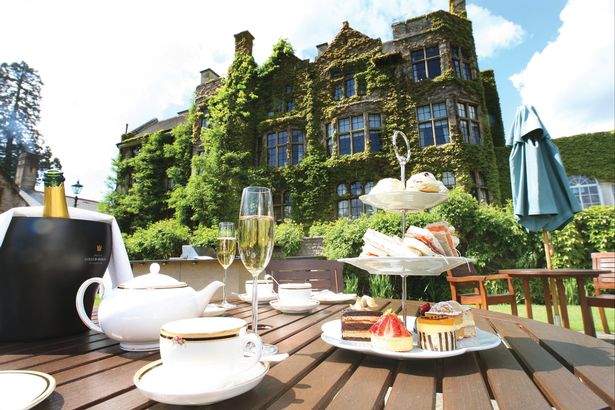
The conservator of British civilisation has ‘lost its local heart’, laments Clive Aslet
I half knew I was making a mistake. My friend warned me, but for goodness’ sake, if you can’t trust a National Trust tea room to get things right, what hope is there left for British culture? But before so much as a forkful of the apple crumble muffin had passed my lips, its character had revealed itself. It had indeed crumbled, into something drier than the Dead Sea scrolls. Cinnamon added its uniquely desiccating note. All the other ingredients of a properly English afternoon were there — unexpected autumn warmth, country-house surroundings, a charming person behind the till. But that muffin… Well, my own fault. Not baked locally, I suspect. When have muffins — The Great British Bake Off apart — been part of the native repertoire of cakes? They’re American, dammit. English muffins even more so.
And this gets to the bottom of that great issue of our times: What’s Wrong with the National Trust? The answer (one answer, anyway) lies in its lack of local specificity. Those of us who lived through the cultural darkness of the 1970s remember the National Trust tea as being a beacon of civilised values. Here were the eatables of our dreams, nothing fancy or overegged, a culinary landscape where arid seed cake and fruitful Dundee could be found beside a Table Top Mountain of Victoria sponge. Ah, the tea rooms of our youth. Will they ever return?
As a matter of fact, yes. Indeed, they have already done so. I don’t refer only to the work being done by metropolitan bakers such as Gail’s. Even more striking are the attempts to re-invigorate local identity in the country. I felt this strongly at the Alde Valley Food Festival at Snape Maltings, from which I recently returned, my bags groaning with lobsters, fudge, Suffolk salami and a round of unpasteurised Baron Bigod brie (made on a farm near Bungay). And even more so at Cornucopia, an arts show on Jason Gathorne-Hardy’s White House Farm.
Educated at Oxford and the son of the Earl of Cranbrook, Jason is not an ordinary farmer; he’s also an artist. His drawings of farm animals and birds are uncanny in their ability to seize the essence of the subjects, transferring their life on to the page. But for his festivals — there’s another one each spring — he turns the whole of his farm into an artwork. It’s magical. Each time I go I feel as though I’ve strayed into fairyland, with a hint of Vauxhall Pleasure Gardens in the days when the Temple of the Muses was hung with Rococo art. Willow wands are bent into arches from which ribbons stream in the breeze.
The centre of operations is the lambing sheds, washed down and used for the display of local paintings, printmaking, icons, furniture, bronzes, knives, spoons, bags, sculpture and probably other things I’ve forgotten. It helps that Maggi Hambling is a neighbour, although I’d be equally pleased to go home with a watercolour by Tessa Newcomb recording Lady Cranbrook’s kitchen garden at Great Glemham, where the redoubtable food campaigner grows a prodigious number of remarkable varieties of bean and squash. Or one of the supremely tactile casts made in bronze from vegetable singularities in the same garden, like peculiar tomatoes and curious apples.
My eye was caught by the huts that Jason has built to accommodate his different artists in residence. One’s in a hedgerow, another in a wood. The latter was where Synnove Fredericks was laying her head. Synnove is a young artist whose project is to tan deerskin from the wood, using oak bark stripped from its trees. I sat on a log watching the leather gently stew: it could have been the Forest of Arden from As You Like It.
The contrast that this makes with the National Trust says something about that in many ways admirable organisation. It’s too big. The local heart has gone out of it. It can no longer channel the creativity that is bubbling away all over Britain like a pot of steaming bark juice. I wonder if it doesn’t also illustrate something general about the world. The more our lives become globalised, the more important it is for us to find meaning in the places immediately around us.
That great engine of globalisation, the internet, is also the medium of choice for numerous local groups, which, without it, would not be able to achieve a critical mass. This is bad when it fosters religious extremism and paedophilia — but good for local history societies, bloggers and mother-and-toddler groups. And it’s important for that quality beloved of politicians, our sense of well-being. (Do you remember? David Cameron made much of it.) For while globalisation makes us rich, local makes us happy. OK, that’s a tiny oversimplification — but it works for me.






